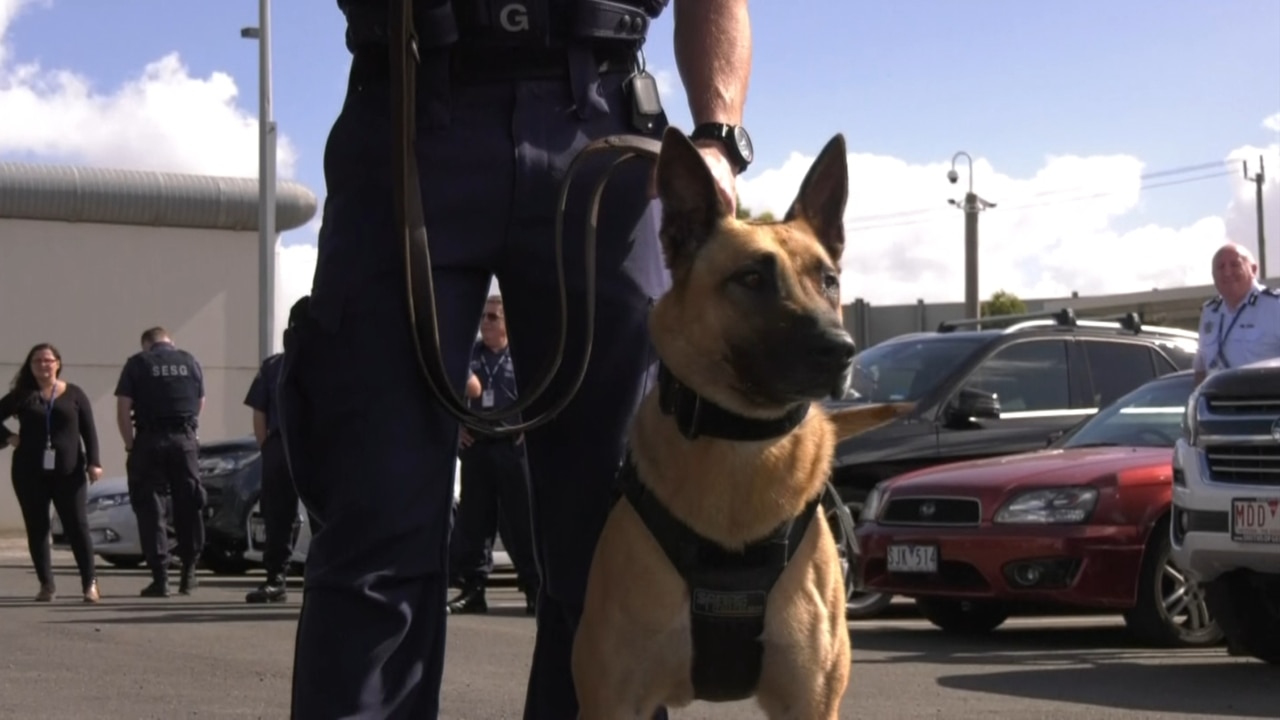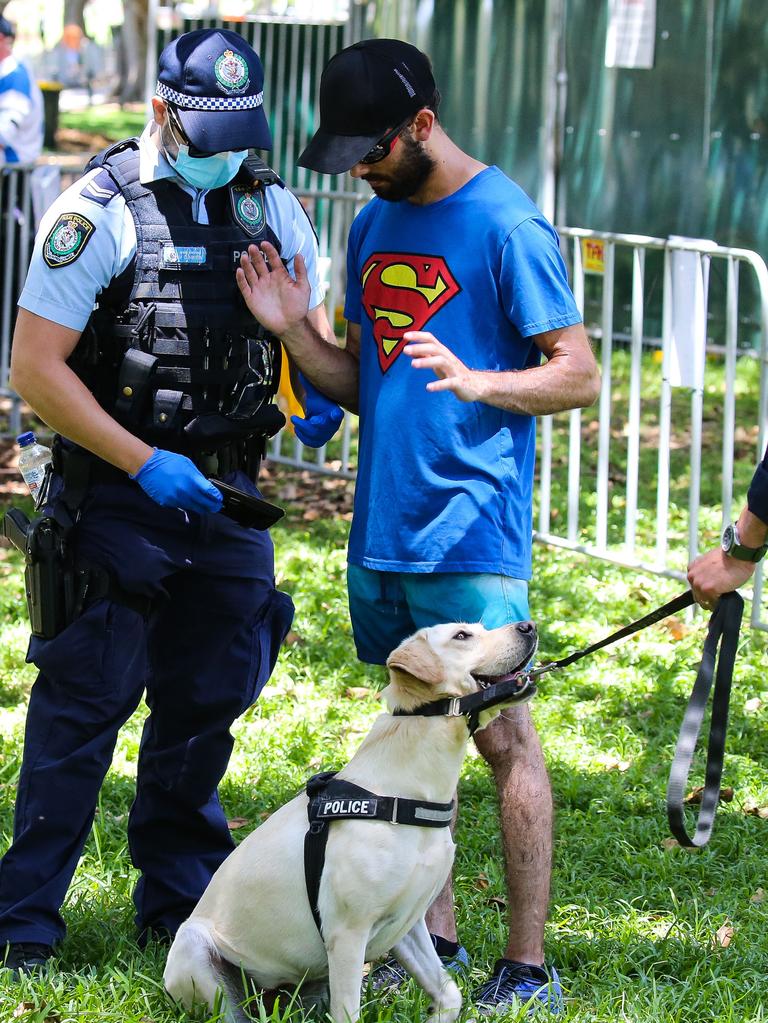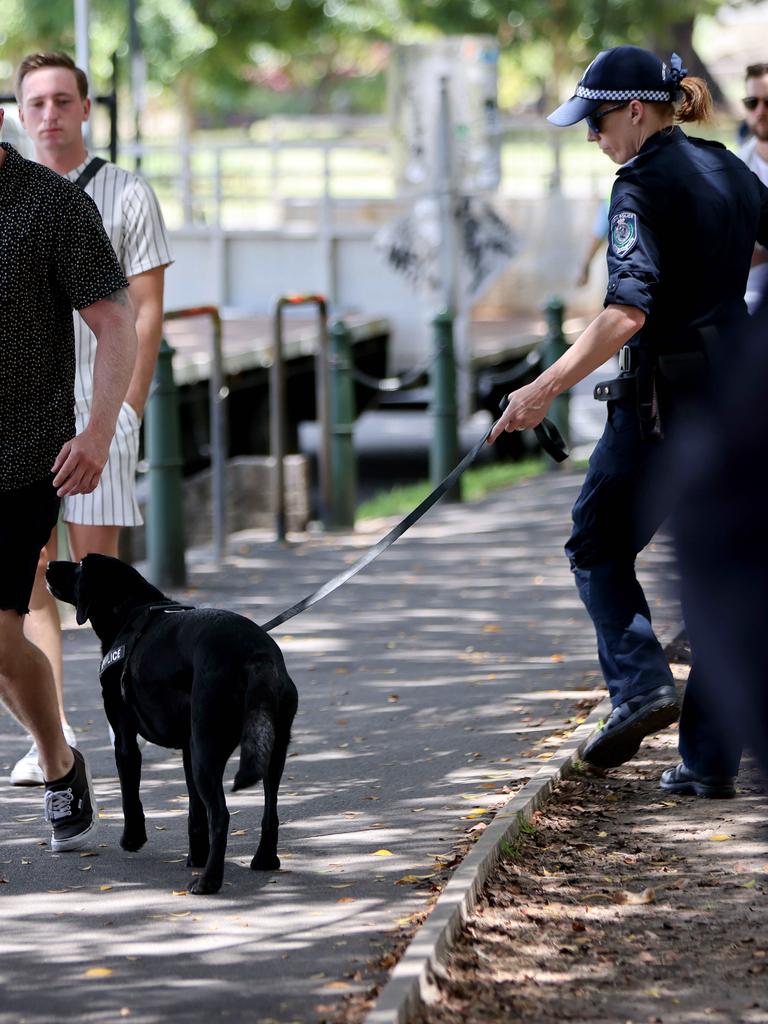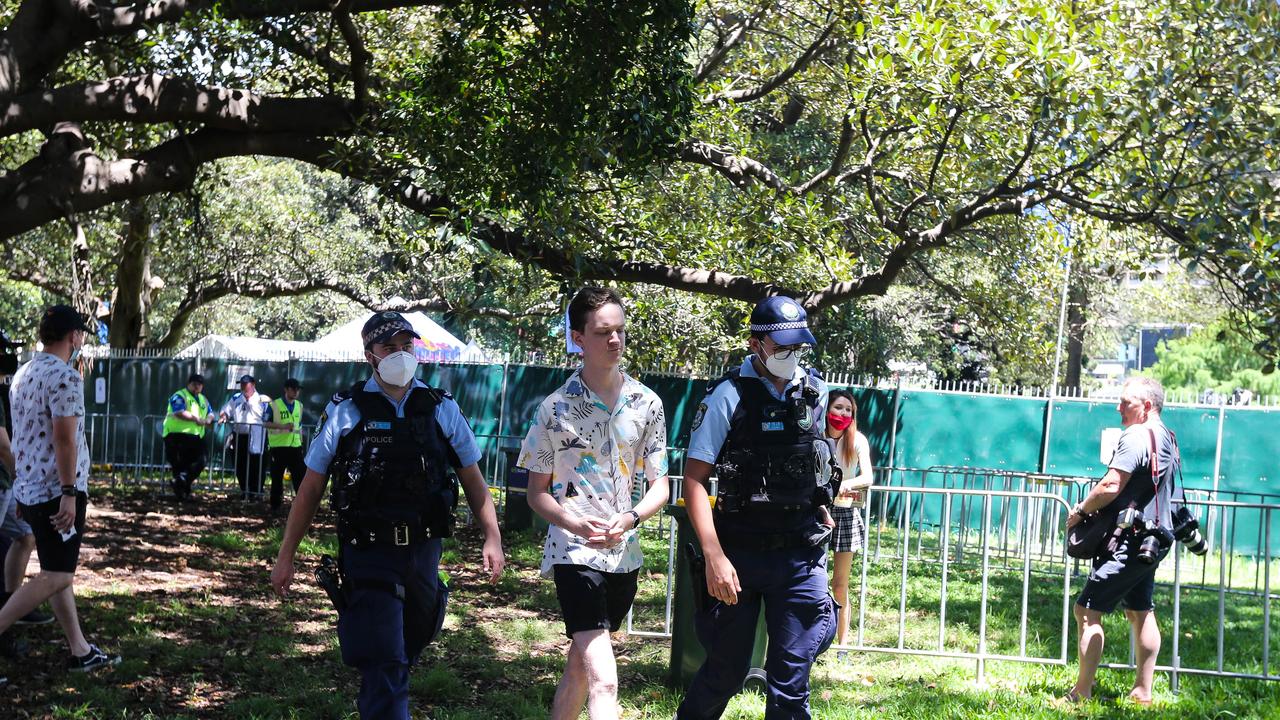‘Out of control’: new findings suggest NSW Police aren’t abiding by strip search procedures
With festival season kicking off this weekend, new data has revealed a disturbing trend about police drug detection dogs.

Shocking new data has found that drug detection dogs are wrong up to 75 per cent of the time.
According to NSW Parliament documents, 71 per cent of searches indicated by sniffer dogs up until June 30 this year found no illicit substances.
That’s a whopping 2,859 searches out of 4,000 just during the first half of the year.
Last year the number sat at 75 per cent, where almost 5,000 searches proved the dogs incorrect.


The findings have come just in time for festival season, with both Listen Out and Knockout Outdoor taking place this Saturday in NSW.
With festivals on our doorstep, the Law Enforcement Conduct Commission has released a report that found only 27 per cent of strip searches suggested that police had followed the rules around protecting privacy and dignity.
The report reviewed 359 police records spanning five music festivals throughout 2021-2022.
Cate Faehrmann, the Greens spokesperson for Drug Law Reform and Harm Reduction, said that NSW police are “out of control”.
“It’s outrageous that less than one in three police officers is following the rules for protecting privacy and dignity in strip searches,” she said.
“We didn’t really need any further evidence that NSW Police are out of control but here it is.”
The LECC report comes in response to a 2020 Inquiry into NSW Police Force strip search practices.
Following the 2020 inquiry, NSW police implemented two new initiatives to improve officers’ record-keeping for strip searches and to help officers observe relevant legislation, policy and process.
As part of the initiatives, NSW officers are now required to complete a Music Festivals Fundamentals training module within a year prior to working at a music festival.
However, the LECC report found that 28 per cent of officers hadn’t completed the module at all, and a further 25 per cent had completed it outside the required timeframe.
The report also found that only 30 per cent of strip search records reflected “consideration of ‘seriousness and urgency’ for strip searches”.
“What we’ve learned from the new report is that it doesn’t matter what these standards are, or what police are required to do, because most aren’t even turning their mind to it before demanding a search,” Faehrmann said.
“This shows that nothing has changed in the way in which police undertake strip searches was reviewed due to concerns about heavy-handedness and police not abiding by their own rules.”


Gino Vumbaca, President of Harm Reduction Australia and Pill Testing Australia, questioned why strip searching has to continue in the first place.
“I think what’s fundamentally missing from this report is an understanding of the impact of strip searching people, and young people at that,” he told news.com.au.
“The harsh reality is it means ‘Well, the dog sat down beside you, you’re acting nervous. You now need to go in this room and a person you don’t know is gonna ask you to strip down completely naked while they explore your body to make sure you’re not secreting any drugs.’”
He added, “I think most people think that’s just over the top”.
Vumbaca also discussed the potential for festivalgoers to pre-load, or in other words, take multiple illicit substances at once before entering a festival or venue in fear of having them confiscated.
Back in 2013, there was an inquest into the death of a 17-year-old WA teenager who died after taking three ecstacy pills before Perth’s Big Day Out festival.
Gemma Thoms took one pill before heading to the festival, and two when she arrived.
The WA teenager overdosed later in the day and died.
“The harm that’s being done isn’t justified, it’s simple as that. And I think that requires a real re-think on how we police festivals,” Vumbaca told news.com.au.
Comparing it to the Melbourne Cup, he discussed how it’s typically expected that many patrons will be intoxicated.
“They just manage it all, accept that there’s going to be a high level of intoxication, and so they’re going to manage that so people don’t get hurt.”
Festivals tend to take the opposite approach, he said, where it’s a matter of “We’re gonna try and catch everybody”.

“’If we have to strip search people that have done nothing wrong, well, that’s just collateral damage that we’re prepared to accept.’ And that’s just wrong,” Vumbaca said.
In response to the LECC findings, a NSW Police spokesperson has said that the police force have taken steps to rectify gaps in training and knowledge identified by the audit.
“This includes the introduction of a pre-event online education package, Music Festival Fundamentals, and re-issuing the Music Festivals Guidelines to all officers in the field, as well as issuing memoranda to all Commanders to remind officers to comply with mandatory training requirements,” the spokesperson said.
“Any time a police officer executes their search powers, they must have the state of mind required by Law Enforcement (Powers and Responsibility) Act (LEPRA).
“The legislation contains safeguards to preserve the privacy and dignity of members of the public.”
In the wake of this weekend’s festivals, NSW Health have also released a warning over an MDMA tablet containing more than four times the average dose.
The tablet circulating throughout NSW has been described as a square, pink-orange tablet with a “GUCCI” logo and wording imprinted on it.
Medical Director of the NSW Poisons Information Centre, Dr Darren Roberts urged festivalgoers to lok out for one another.
“If you or a friend feel unwell, you won’t get into trouble for seeking medical care. Please seek help immediately.”
Originally published as ‘Out of control’: new findings suggest NSW Police aren’t abiding by strip search procedures




